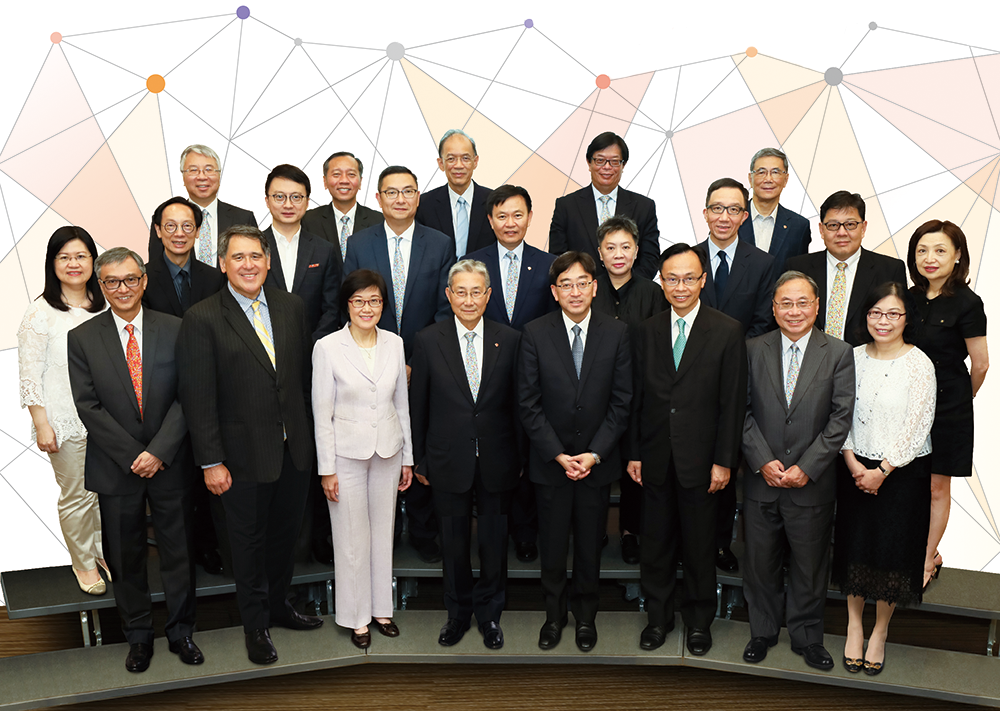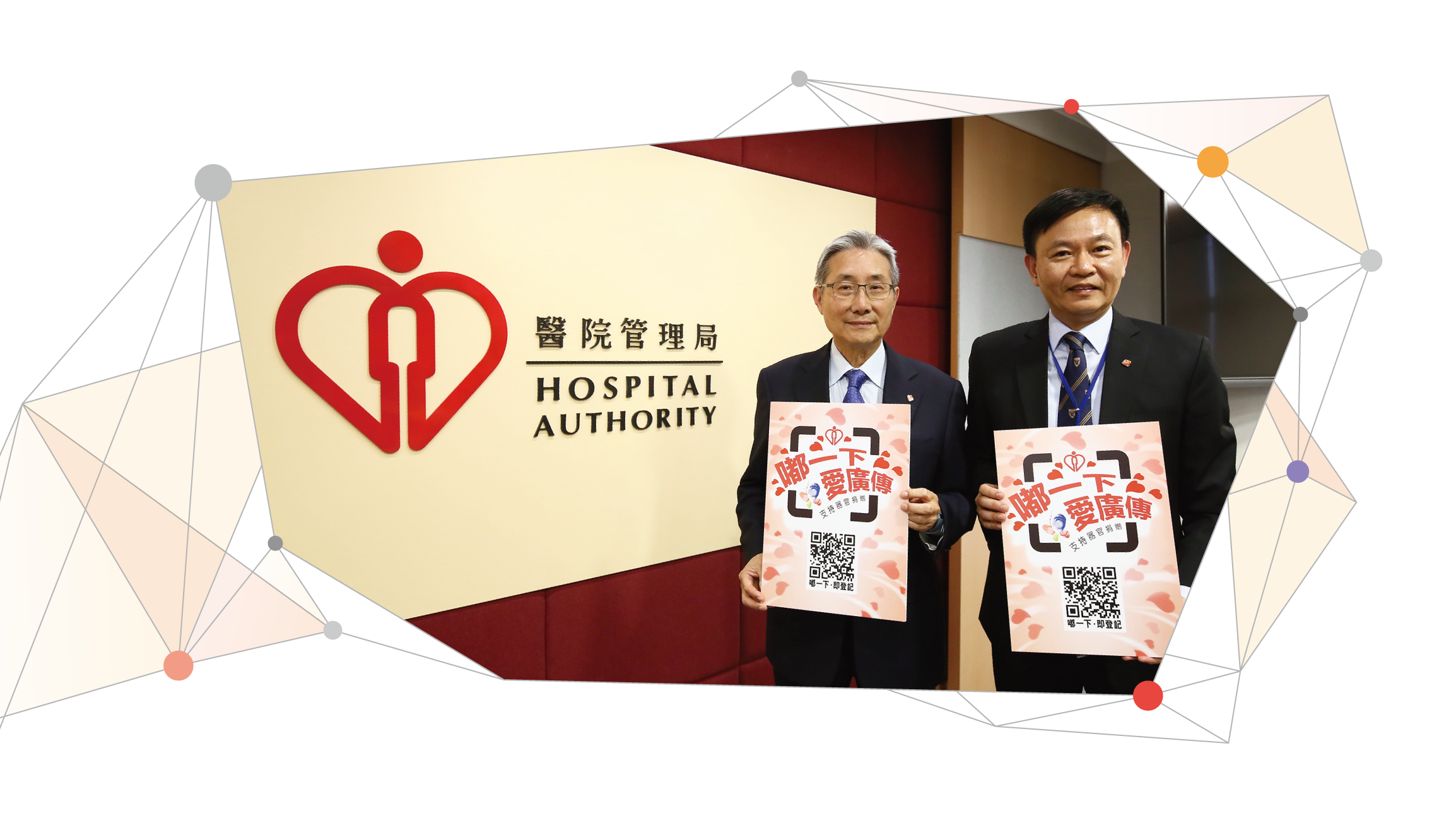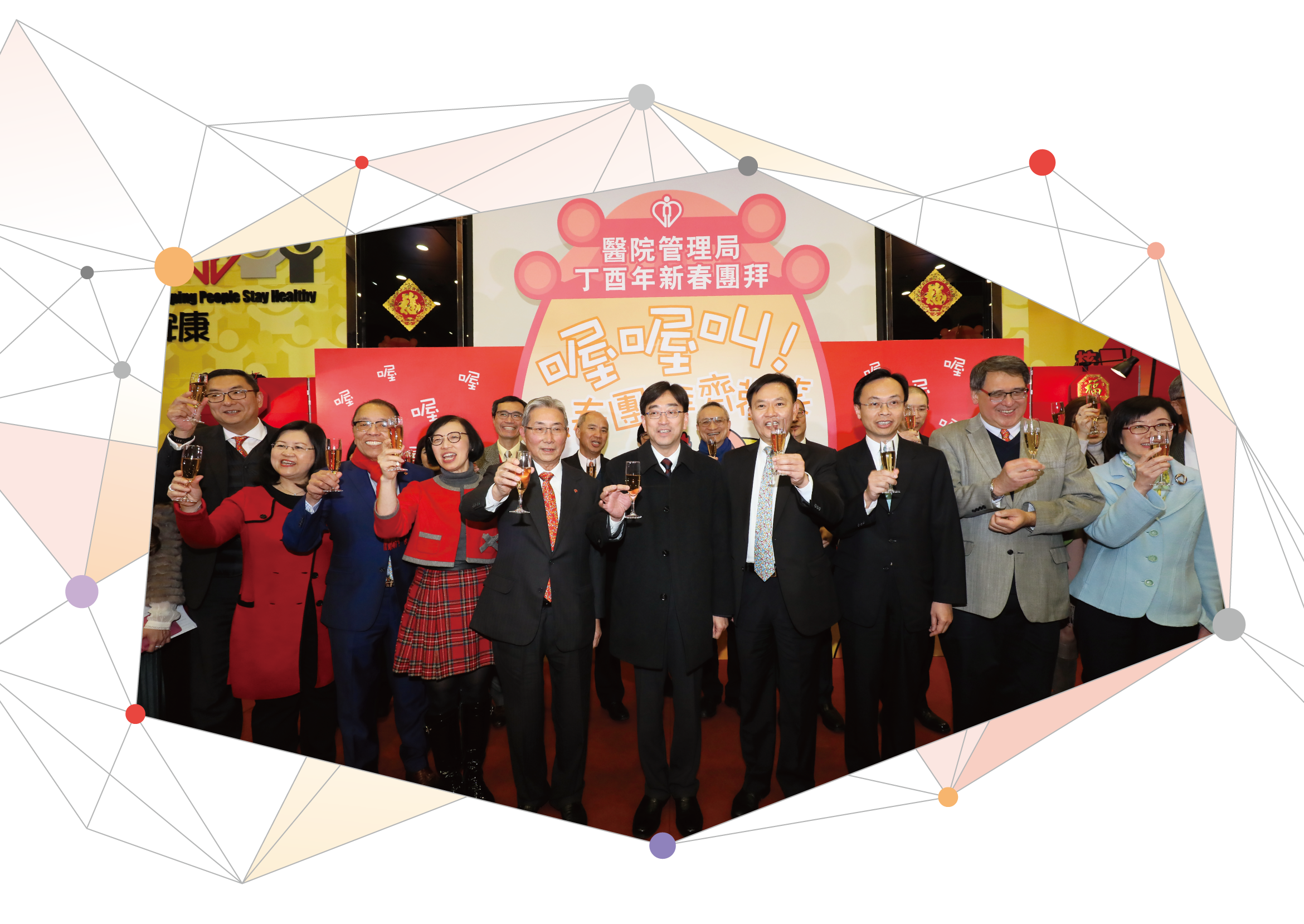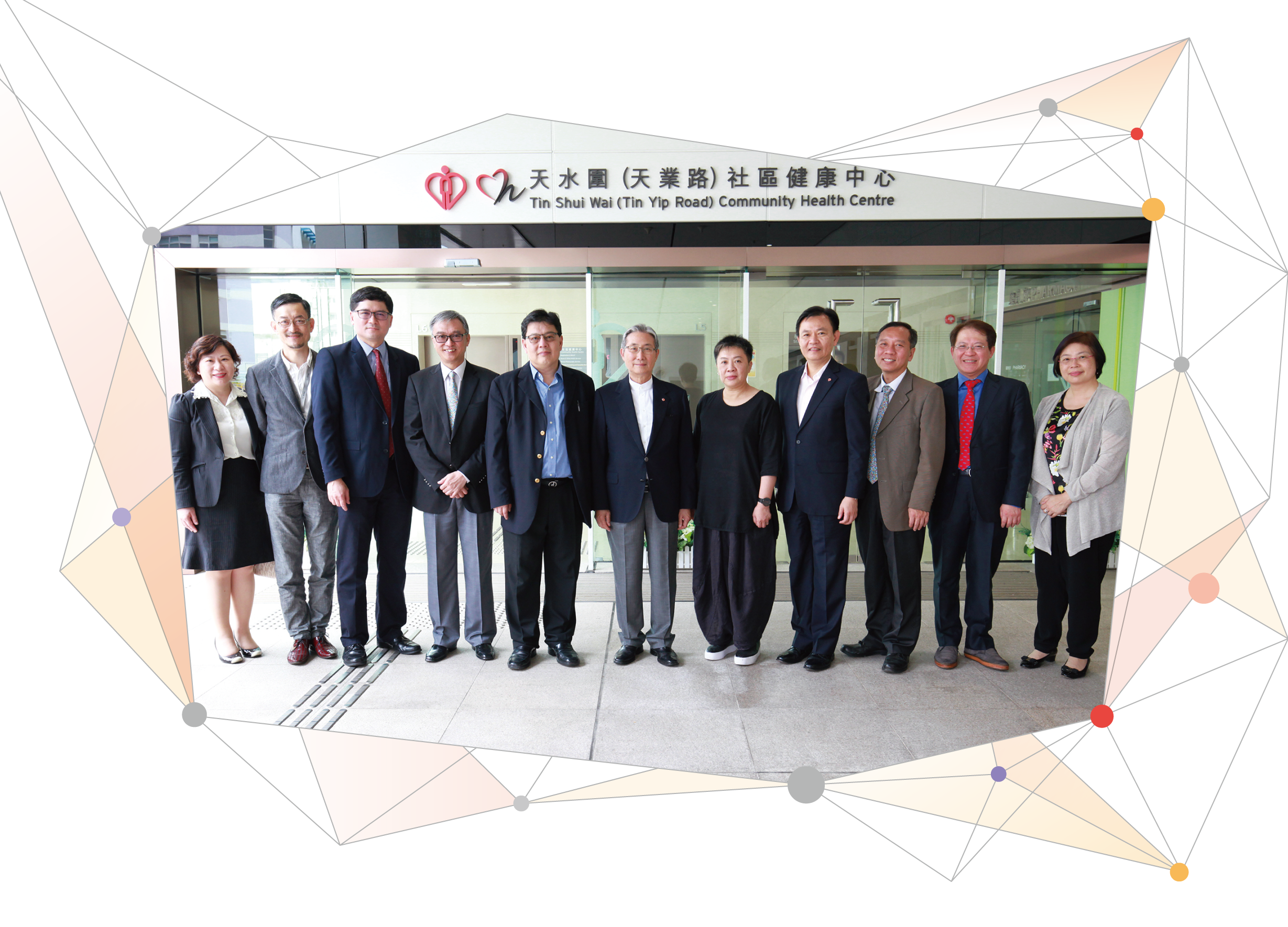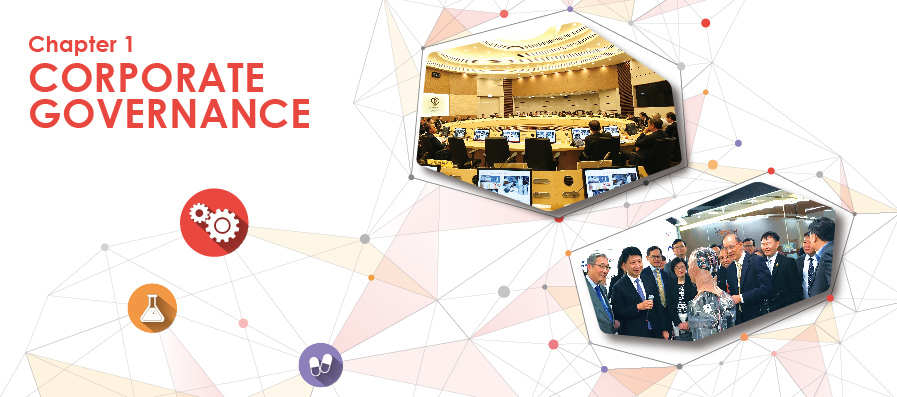
Corporate Governance
The Hospital Authority (HA) is a statutory body established under the Hospital Authority Ordinance (Cap. 113) (the HA Ordinance) in December 1990, responsible for managing all public hospitals in Hong Kong. HA is accountable to the Hong Kong Special Administrative Region (HKSAR) Government through the Secretary for Food and Health.
Principles
The Board acknowledges its responsibility for and commitment to corporate governance principles and recognises that the Authority’s stakeholders expect the highest standards of performance, accountability and conduct.
Hospital Authority Board
Under the HA Ordinance, the Chief Executive of the HKSAR appoints members to the HA Board. Membership of the Authority comprises 24 non-public officers, three public officers and one principal officer (the Hospital Authority Chief Executive). Board Members are not separately remunerated. The 2016-17 Board consisted of 28 members including the Chairman, with details listed in Appendix 1.
The HA Board meets formally about 12 times a year and any other times as required. In 2016-17, it met 16 times and considered over 140 agenda items, covering an array of important matters in leading and managing HA, including formulation of policies and strategies, steering and monitoring of the planning, development and operation of hospital services and supporting facilities, resource management, risk management and internal control, contingency preparedness, governance, etc. In addition, three Board papers covering urgent matters were circulated for approval between meetings.
Pursuant to the recommendations of the Steering Committee on Review of HA, the HA Board continued to reinforce its leading and managing role in HA. In overseeing and steering the implementation of various enhancements in the HA Review Action Plan, the HA Board and its functional committees received regular progress reports from the management and provided strategic directions on relevant policy matters.

Corporate governance is an evolving process. Continuous efforts were made by the HA Board to sustain the momentum on a spectrum of enhanced practices to ensure accountability and stewardship of HA’s management of resources and services. Suitable adjustments were made on the terms of reference of individual functional committees as required to reflect the latest developments. The secretariat support and practices for the Board and its functional committees were reviewed and standardised. The role and participation of functional committees were strengthened in setting key standards, driving for best practices and monitoring performance. In pursuit of organisation-wide risk management, joint endeavour was made across HA to achieve progress towards a holistic and standardised approach of risk management. Following established practice, the HA Board and its functional committees conducted annual self-assessment to ensure effective operation and for continuous improvement.
During the year, familiarisation programme in the form of sharing sessions and hospital visits was arranged for new members. Corporate visits were also conducted to keep members abreast of the knowledge and skills applicable to public sector operations.
Board Committees
For optimal performance of roles and exercise of powers, the HA Board has established 11 functional committees: Audit and Risk Committee, Emergency Executive Committee, Executive Committee, Finance Committee, Human Resources Committee, Information Technology Services Governing Committee, Main Tender Board, Medical Services Development Committee, Public Complaints Committee, Staff Appeals Committee and Supporting Services Development Committee. Membership of the committees, terms of reference and focus of work in 2016-17 are outlined in Appendix 3.
Hospital Governing Committees
To enhance community participation and governance of public hospitals, Hospital Governing Committees (HGCs) were established in hospitals and institutions in accordance with the HA Ordinance. Changes in the year included the establishment of HGC for the new Tin Shui Wai Hospital (TSWH) in June 2016 and the dissolving of the HGC for the Rehabaid Centre (RC) in April 2016 subsequent to the termination of HA’s management of the RC. A full list of the HGCs is listed in Appendix 4. In 2016-17, 130 meetings were conducted by 32 HGCs. They received regular management reports from Hospital Chief Executives, monitored operational and financial performance of the hospitals, provided policy guidance on hospital management, and participated in human resources and procurement functions, as well as hospital and community partnership activities.
HGCs operated in accordance with corporate governance policies and practices outlined in the Manual on the Operation of Hospital Governing Committees approved by the HA Board. The linkage and interactions between the Board and HGCs have particular significance to the development of HA’s corporate policies and strategies, and their continuous improvement. Continuous efforts were made to actively engage HGCs in HA’s corporate issues, and ensure follow up actions on feedback from the committees and communication of relevant outcomes. HGCs were also invited to participate in strategic planning involving the hospitals, including matters relating to HA’s fees and charges review, implementation plan for re-delineation of cluster boundary and capacity-demand gap analysis, and the development of refined population-based resource allocation model.
In line with the practice of HA Board and its committees, annual self-assessment was conducted by each HGC with a view to identifying opportunities for further enhancements. All HGCs adopted the standard questionnaire promulgated by the HA Board.
Regional Advisory Committees
To provide HA with advice on the healthcare needs for specific regions of Hong Kong and to assist the Authority with better performance of its functions in relation to the regions, the Authority has established three Regional Advisory Committees (RACs). These committees and their respective membership are listed in Appendix 5. Each RAC meets four times a year.
In 2016-17, the RACs were briefed on the progress of annual plans and targets of individual clusters, as well as other programmes such as the re-delineation of boundary in Kowloon and service commencement of TSWH. Other discussions included a number of matters, including progress update on the development of Electronic Health Record programme and HA’s participation as user, progress update on the development of Integrated Chinese-Western Medicine Pilot Programme, General Outpatient Clinic Public-Private Partnership (PPP) Programme, development of a refined population-based resources allocation model, Colon Assessment PPP Programme, new case booking with mobile application BookHA, winter surge preparation, Annual Report on Public Appreciation, Feedback and Complaints Management 2015-16 and 2015 Patient Experience and Satisfaction Survey on Inpatient Service, etc.
Executive Management
The executive management team of HA is outlined in Appendix 2(b). The executives are charged by the HA Board with the responsibility to manage and administer day-to-day business and operations of HA. To ensure that the management can discharge duties in an effective and efficient manner, the HA Board has set out clear delegated authority, policies and codes of conduct. The Board approves an annual plan prepared by the executives in accordance with the Board’s direction. Regular executive reports on the progress of agreed performance indicators and targets are presented to the Board.
Under the powers stipulated in the HA Ordinance, the Authority determines the remuneration and terms and conditions of employment for all its employees. Remuneration packages of executive directors and other senior managers are devised to attract, motivate and retain high calibre individuals in a competitive talent market. Remuneration packages of all senior executives are considered and endorsed by the HA Board through the Executive Committee.

